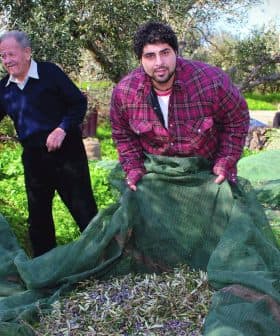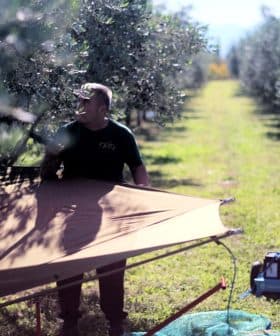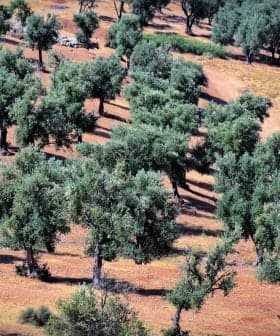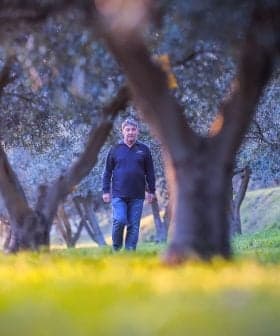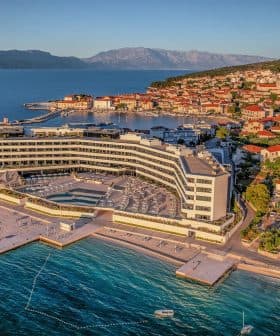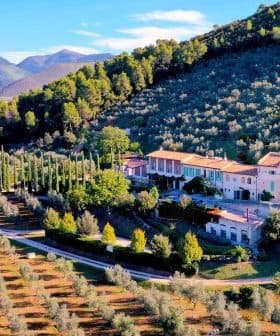Solfrut Sets Sights on Expanding Domestic Market as Production Grows
With 2,000 trees recently planted in super-high-density and a new mill, the award-winning company in San Juan seeks to grow Argentina’s olive oil culture.
 (Photo: Solfrut)
(Photo: Solfrut) Solfrut, the largest olive oil producer in Argentina, has successfully cultivated high-density and super-high-density olive groves in San Juan, winning multiple awards for their extra virgin olive oils. The company’s commitment to research, mechanization, and sustainability has allowed them to thrive in a challenging environment, while also working to educate consumers and promote the culture of high-quality olive oil in Argentina despite economic challenges.
Olive groves flourish in San Juan, a northwestern province of Argentina, covering a huge area and yielding significant volumes of extra virgin olive oil.
The country’s largest olive oil producers thrive in the province, including the super-high-density groves of Solfrut.
The new consumers in Argentina look at the labels and understand the herbal and fruity notes. The opinions of consumers are slowly evolving.
The company’s flagship extra virgin olive oils won two Gold Awards at the 2022 NYIOOC World Olive Oil Competition, demonstrating the potential of research and mechanization.
“We are so proud of such results. Awards such as these tell us that we are on the right path,” Guillermo Kemp, Solfrut’s commercial director, told Olive Oil Times. “It has been joyful news not only for us here at headquarters but also for all our people in the fields and the mills.”
See Also:Producer ProfilesMost of the more than 3,000 hectares of olive groves managed by Solfrut are super-high-density plantations in which trees are placed very close to each other to increase productivity through mechanization. Still, not all Solfrut orchards are alike.
“We grow olives in three different locations, each with its own characteristics,” Kemp said. “Our olive plantations go from high-density to super-high density. From 600 trees in the first groves planted by the company 25 years ago to 2,000 trees in the newest ones. The goal is the highest quality in all areas.”
High-density and super-high-density groves require irrigation, which has been a significant challenge for Solfrut.
“When the company started, this land was considered a desert,” Kemp said. “Lack of water and rainfall are the norm. We have between 80 and 90 millimeters of rain each year.”
By comparison, in highly relevant olive-producing areas of the Mediterranean basin, such as Jaén in Spain, 500 to 600 millimeters of rainfall per annum.
“Understanding how to proceed and how to better start olive cultivation in this region was not an easy task,” Kemp said. “Which olive cultivars we had to focus on, and what kind of irrigation was needed, all of this required research.”
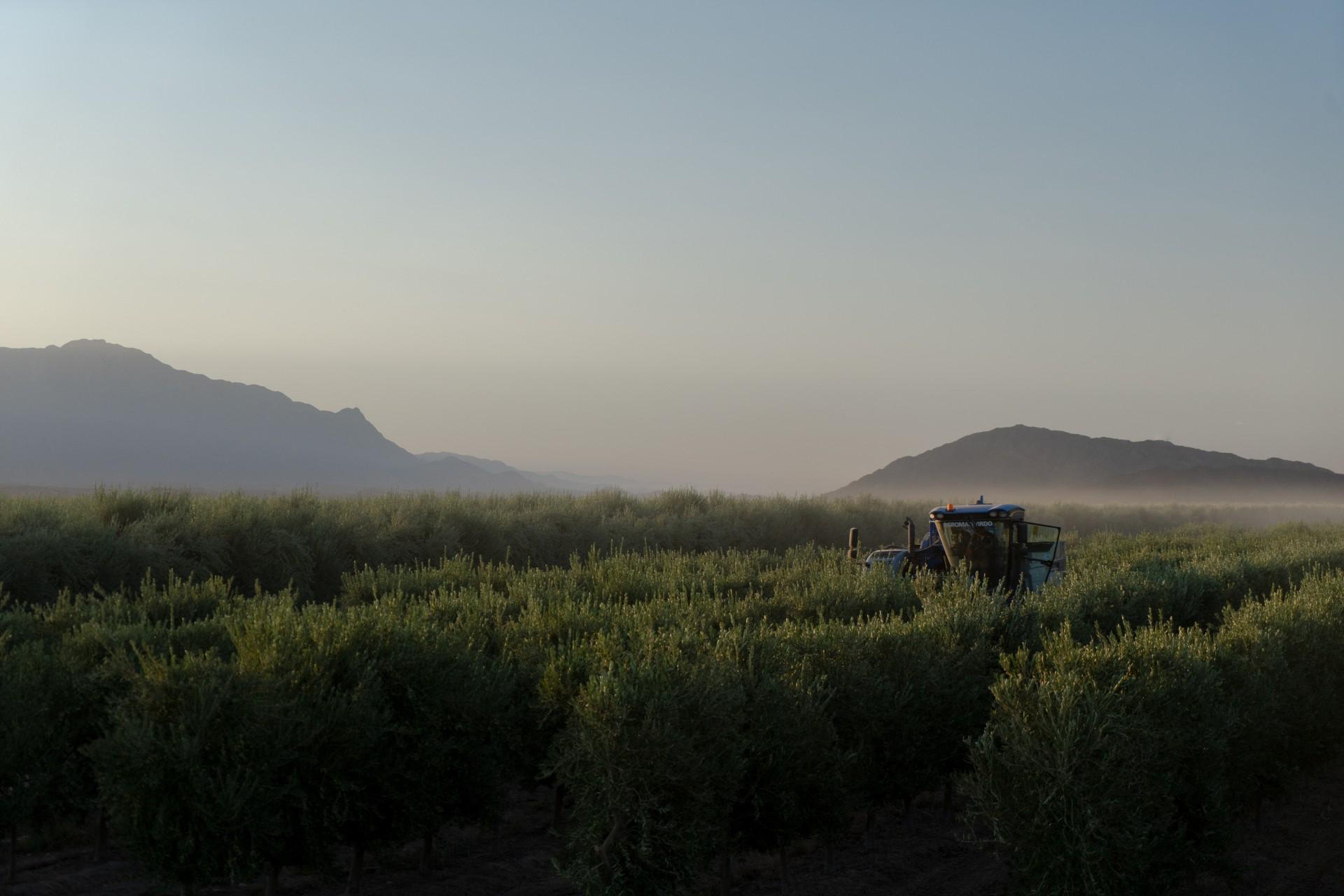
(Photo: Solfrut)
“José Chediack [president of Solfrut’s parent company] traveled to Europe, Australia and California while starting operations here,” he added. “Twenty-five years ago, the first water wells the company dug went 500 meters below the ground.”
Kemp recalled how the company initially planted Frantoio and Leccino trees but later switched to Arbosana.
“Frantoio trees were beautiful, huge, green, but year after year, they did not bear any fruit. We had to substitute them,” Kemp said. “Thanks to such decades-long research, we now know which cultivars are better to deploy, what kind of irrigation they need and so forth.”
Precision irrigation allows Solfrut to reduce water use while ensuring the trees receive the water they need.
Planting thousands of irrigated trees in a high desert has impacted the local environment, and over time, new species of plants and animals have started populating the region.
“It has become something like an oasis, with animals unseen before, such as foxes and birds, and a growing number of plant species,” Kemp said.
Research is ongoing at Solfrut to understand the water cycle, reduce the environmental impact of operations and foster a healthy ecosystem.
“That is why about three years ago we established a sustainability committee which is entirely devoted to finding the best ways to optimize production while also working on our circular economy, preservation of resources, such as water, and improving biodiversity,” Kemp said.
With that goal in mind, the company has begun to reuse the olive pits for energy production and fertilizer.
“Our soil is quite poor, so it is helped by fertilization. We also dry the pits so that one year after their collection, we can use them as fuel for heating,” Kemp said. “But this is just the beginning, as we are constantly improving our environmentally-friendly approach.”
For example, Kemp said the company’s bottles are made of light PET, a recycled plastic.
Solfrut produces approximately 3,500 tons of olive oil each year, which the company hopes will increase as the number of plantations expands.
In 2023, Solfrut will also start its operations at a new mill considered to be the largest in South America.
“We already have the structure, we also installed the stainless steel tanks in 35, 50 and 100-ton sizes, and we are now setting the mixers and decanters in place,” Kemp said. “The plant will have a transformation capacity of more than 500,000 kilograms of olives per day. And it will have 4,000 tons of olive oil storage capacity.”
Most of Solfrut’s production is exported in bulk to countries such as Brazil and the United States. Still, 20 percent of the 2022 harvest is being sold in Argentina, where the company holds a significant market share.
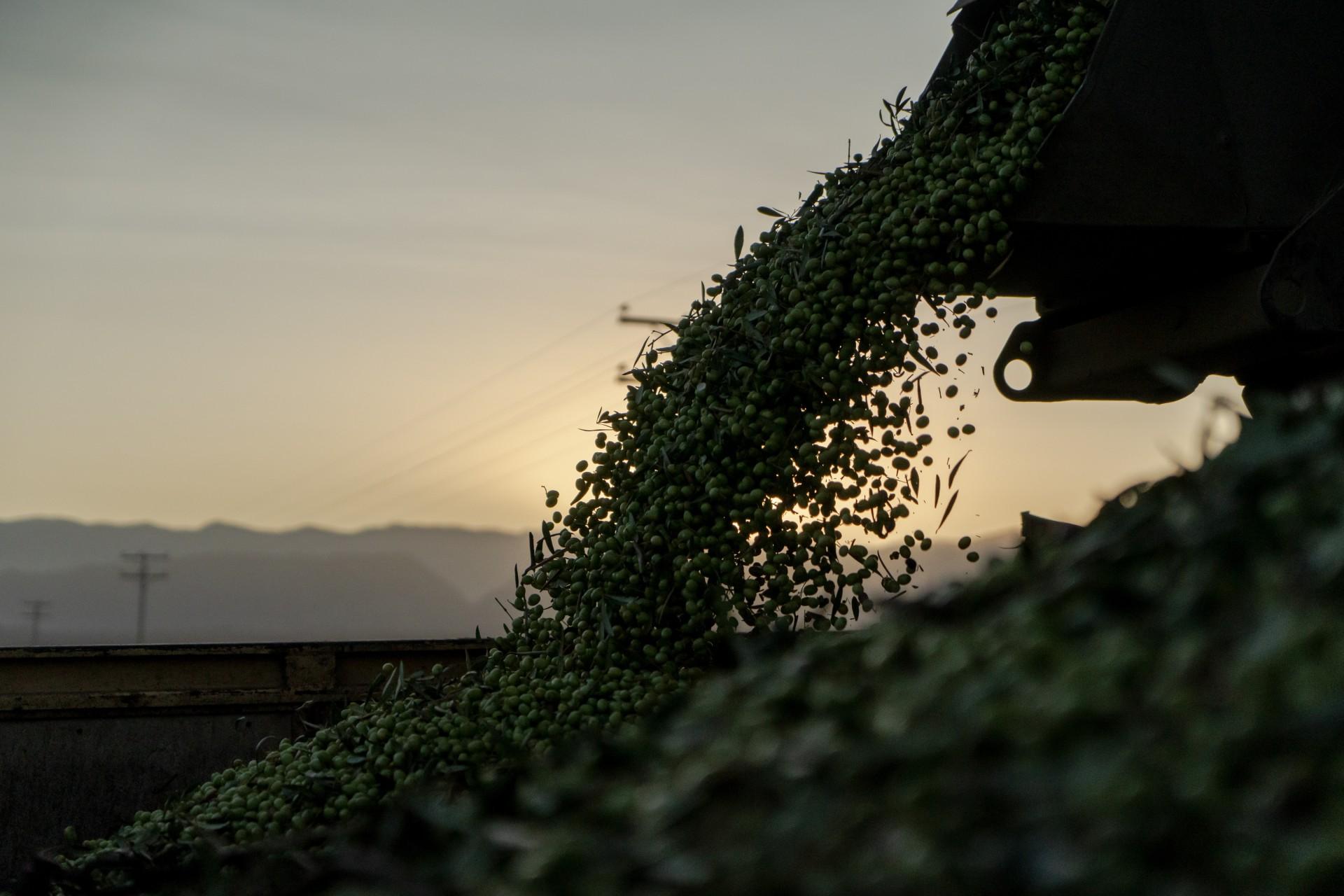
(Photo: Solfrut)
“One out of eight bottles of olive oil consumed in Argentina is Olivita, one in four is one of Solfrut’s other olive oil products,” Kemp said.
However, he believes that olive oil culture and consumer awareness about the health benefits of extra virgin olive oil in Argentina still lag behind other countries.
“In the last 10 years, a country like Chile has gone from 250 grams of olive oil consumed per person to over one kilogram,” Kemp said. “The same has happened in the United States. In Argentina, average consumption is around 250 grams per year per person.”
“Given the large share of the market, we feel responsible for the development of the olive oil culture in our country,” he added.
However, Kemp said Argentina’s affinity to olive oil is slowly beginning to grow. “The first consumers of olive oil in Argentina were not looking for olive oil. They were looking for some kind of cooking oil with strong flavors which could remind them of, let’s say, a pizza,” he said.
“Today, the new consumers in Argentina look at the labels and understand the herbal and fruity notes,” he added. “The opinions of consumers are slowly evolving. Education is the first step we as a company have to contribute.”
To this end, Solfrut is trying to evangelize extra virgin olive oil quality across the rich spectrum of Argentina’s food culture.
“We made agreements with all the gastronomic institutes of Argentina,” Kemp said. “We showed them that the product most of them were using to educate their students did not compare to a quality extra virgin olive oil.”
“So we gave them ours for free, to help them correctly inform their students about the unique profile of extra virgin olive oil,” he added. Along with the olive oils, Solfrut also provided educational material to instructors.
“We have also invented a contest for caterers and restaurants,” Kemp said. “Chefs from all over the country participate with their recipes, where extra virgin olive oil is the protagonist… With such actions, we began to educate the consumer and raise awareness.”
Away from education, Argentina’s dire macroeconomic situation is another challenge for olive oil producers to overcome.
“Olive oil is an expensive product, and we have no support from the government,” Kemp said. With economists from its central bank predicting annual inflation to exceed 100 percent by December, “it is easy for many to choose other options.”
“When the economy finally improves, we expect internal olive oil demand to grow substantially,” he concluded.
Share this article


